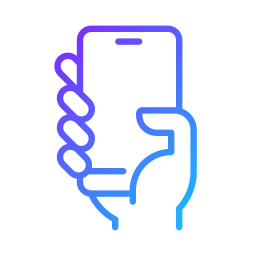In the ever-evolving field of computer science, UX/UI design has developed as an essential component of software development. User Experience (UX) and User Interface (UI) design are no longer optional but essential for creating software that resonates with users. These design principles bridge the gap between technology and user satisfaction, ensuring that applications are both functional and intuitive.
As organizations strive to meet user expectations in an increasingly competitive digital landscape, understanding the role of UX/UI design in software development has become paramount. Platforms like EasyShiksha.com provide comprehensive learning resources that equip students and professionals with the skills needed to excel in this domain.
Top Courses in Software Engineering
What is UX/UI Design?
Before diving into its role in software development, it’s essential to understand the components of UX and UI design:
1. User Experience (UX) Design:
UX design focuses on the total experience that a user has when interacting with a product. It includes aspects such as usability, accessibility, and user satisfaction. A well-designed UX ensures that the software meets the needs and expectations of its users.
2. User Interface (UI) Design:
UI design deals with the visual elements of a product, such as layout, colors, typography, and buttons. It ensures that the interface is aesthetically pleasing and easy to navigate.
In computer science, these two aspects work hand-in-hand to create software that is both effective and enjoyable to use.
The Importance of UX/UI Design in Software Development
1. Enhances User Satisfaction
The primary goal of any software application is to solve a problem or fulfill a need. However, even the most feature-rich application can fail if users find it difficult to navigate or understand. UX/UI design plays a vital role in ensuring that the software is user-friendly, leading to higher satisfaction levels.
For instance, a banking app with complex navigation may discourage users, while a seamless design can encourage frequent usage. With platforms like EasyShiksha.com offering insights into UX/UI principles, developers can create software that truly connects with users.
2. Improves Functionality
UX/UI design is more than just aesthetics; it is also useful. Designers ensure that every feature of the software is easy to access and use. This is particularly important in the field of computer science, where software often involves complex functionalities.
By focusing on intuitive designs, developers can minimize the learning curve for users, making the software more effective.
3. Boosts Business Success
Software that delivers an excellent user experience is more likely to succeed in the market. Positive user experiences lead to higher customer retention, increased recommendations, and better reviews. Businesses understand the value of investing in UX/UI design as it directly impacts their bottom line.
For those looking to upskill in this area, EasyShiksha.com offers resources that highlight the business advantages of good UX/UI design.
4. Reduces Development Costs
Incorporating UX/UI design principles early in the development process can result in significant long-term cost savings. Identifying and resolving usability issues during the design phase is far less expensive than addressing them post-launch.
Students of computer science are increasingly being taught the importance of prototyping and user testing, both of which are key components of UX/UI design.
Top Courses in Computer Science Engineering
How UX/UI Design Integrates with Software Development
1. Research and Analysis
Before any development begins, UX/UI designers conduct extensive research to understand user needs, preferences, and pain points. This data serves as the foundation for creating designs that align with user expectations.
Platforms like EasyShiksha.com emphasize the importance of user research in their courses, ensuring that budding developers and designers grasp this critical aspect.
2. Prototyping and Wireframing
Prototyping and wireframing are essential steps in the software development lifecycle. They provide a visual representation of the software’s structure and functionality. This phase allows developers and stakeholders to identify potential issues and make necessary adjustments before coding begins.
For students pursuing computer science, mastering these skills can make them more versatile and valuable in the job market.
3. Collaboration with Developers
UX/UI designers and software developers work closely throughout the development process. Designers provide detailed guidelines on how the interface should look and function, while developers bring these designs to life through coding.
This collaborative approach ensures that the final product meets both design and technical specifications.
4. Testing and Feedback
After the software is developed, it undergoes rigorous testing to ensure that the UX/UI design meets user expectations. Feedback from real users is invaluable for making iterative improvements.
With EasyShiksha.com’s emphasis on practical learning, students can gain hands-on experience in testing and refining software applications.
The Challenges of UX/UI Design
1. Balancing Aesthetics and Functionality
Designers often face the challenge of creating interfaces that are both visually appealing and functional. Striking the proper balance necessitates a thorough grasp of user behavior and technical constraints.
2. Keeping Up with Trends
The field of UX/UI design is constantly evolving. Designers and developers in computer science must stay updated with emerging trends, such as dark mode, micro-interactions, and voice interfaces.
3. Limited Resources
Startups and small teams often struggle with limited resources for UX/UI design. However, investing in even basic design principles can lead to significant improvements in user experience.
Why Learn UX/UI Design?
For students and professionals in computer science, gaining expertise in UX/UI design can open up new career opportunities. Whether you aim to become a full-stack developer or specialize in front-end development, understanding UX/UI principles will set you apart in the job market. Platforms like easyshiksha.com offer a wide range of courses that cover both computer science fundamentals and design skills, making it easier to master these essential tools.
Check out our latest article: JAIN Online Becomes The World’s First Online Learning
Real-World Examples of UX/UI Design in Action
- E-Commerce Platforms Companies like Amazon and Flipkart use UX/UI design to create user-friendly shopping experiences. Features like personalized recommendations and streamlined checkout processes are a testament to effective design.
- Social Media Apps Apps like Instagram and Twitter prioritize UX/UI design to keep users engaged. Intuitive navigation, responsive interfaces, and visually appealing layouts make these platforms user favorites.
- Enterprise Software Tools like Slack and Microsoft Teams demonstrate how UX/UI design can enhance productivity and collaboration in professional settings.

How EasyShiksha.com Can Help You Get Started
For anyone looking to dive into UX/UI design or enhance their software development skills, easyshiksha.com provides a range of resources and online courses tailored to your needs. From beginner-friendly tutorials to advanced modules, the platform ensures that learners from various backgrounds can benefit. By bridging the gap between theoretical knowledge and practical application, easyshiksha.com equips you to excel in the competitive world of computer science and software development.
Conclusion
The role of UX/UI design in software development cannot be overstated. As technology advances and user expectations rise, the need for intuitive, accessible, and visually appealing software becomes even more critical. For professionals in computer science, integrating UX/UI design into their skill set is a step toward creating impactful and user-centric software solutions.
Whether you are a student just starting your journey or a seasoned professional looking to upskill, platforms like easyshiksha.com offer the tools and guidance you need. By mastering UX/UI design, you can contribute to creating software that not only meets functional requirements but also delights users.





































































